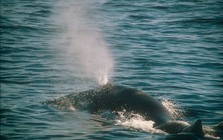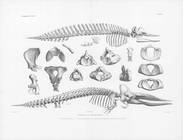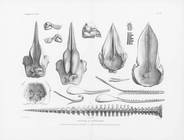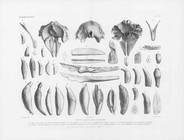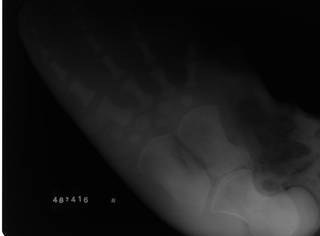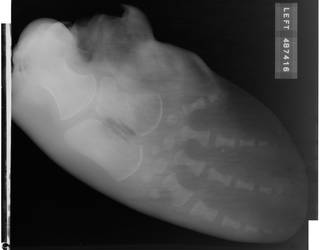RAS name details
Physeter catodon Linnaeus, 1758
137118 (urn:lsid:marinespecies.org:taxname:137118)
unaccepted (synonym)
Species
marine, terrestrial
Linnaeus, C. (1758). Systema Naturae per regna tria naturae, secundum classes, ordines, genera, species, cum characteribus, differentiis, synonymis, locis. [The system of nature through the three kingdoms of nature, according to classes, orders, genera, species, with characters, differences, synonyms, places.]. <em>Impensis Direct. Laurentii Salvii. Holmiae [Stockholm].</em> 1(10) [iii], 824 p., available online at https://biodiversitylibrary.org/page/726886
page(s): 76 [details] Available for editors
page(s): 76 [details] Available for editors
Perrin, W.F. (2021). World Cetacea Database. Physeter catodon Linnaeus, 1758. Accessed through: RAS (Eds.) (2021) Register of Antarctic Species at: http://ras.biodiversity.aq/aphia.php?p=taxdetails&id=137118 on 2025-09-12
RAS (Eds.) (2025). Register of Antarctic Species. Physeter catodon Linnaeus, 1758. Accessed at: https://ras.biodiversity.aq/aphia.php?p=taxdetails&id=137118 on 2025-09-12
Date
action
by
original description
Linnaeus, C. (1758). Systema Naturae per regna tria naturae, secundum classes, ordines, genera, species, cum characteribus, differentiis, synonymis, locis. [The system of nature through the three kingdoms of nature, according to classes, orders, genera, species, with characters, differences, synonyms, places.]. <em>Impensis Direct. Laurentii Salvii. Holmiae [Stockholm].</em> 1(10) [iii], 824 p., available online at https://biodiversitylibrary.org/page/726886
page(s): 76 [details] Available for editors
context source (Deepsea) Intergovernmental Oceanographic Commission (IOC) of UNESCO. The Ocean Biogeographic Information System (OBIS), available online at http://www.iobis.org/ [details]
basis of record van der Land, J. (2001). Tetrapoda, <B><I>in</I></B>: Costello, M.J. <i>et al.</i> (Ed.) (2001). <i>European register of marine species: a check-list of the marine species in Europe and a bibliography of guides to their identification. Collection Patrimoines Naturels,</i> 50: pp. 375-376 (look up in IMIS) [details]
additional source Animal Diversity Web. <em>University of Michigan Museum of Zoology.</em> , available online at http://animaldiversity.ummz.umich.edu/site/index.html [details]
additional source Integrated Taxonomic Information System (ITIS). , available online at http://www.itis.gov [details]
page(s): 76 [details] Available for editors
context source (Deepsea) Intergovernmental Oceanographic Commission (IOC) of UNESCO. The Ocean Biogeographic Information System (OBIS), available online at http://www.iobis.org/ [details]
basis of record van der Land, J. (2001). Tetrapoda, <B><I>in</I></B>: Costello, M.J. <i>et al.</i> (Ed.) (2001). <i>European register of marine species: a check-list of the marine species in Europe and a bibliography of guides to their identification. Collection Patrimoines Naturels,</i> 50: pp. 375-376 (look up in IMIS) [details]
additional source Animal Diversity Web. <em>University of Michigan Museum of Zoology.</em> , available online at http://animaldiversity.ummz.umich.edu/site/index.html [details]
additional source Integrated Taxonomic Information System (ITIS). , available online at http://www.itis.gov [details]
 Present
Present  Inaccurate
Inaccurate  Introduced: alien
Introduced: alien  Containing type locality
Containing type locality
Marine Life Information Network - UK
To Barcode of Life (61 barcodes)
To Biodiversity Heritage Library (181 publications)
To European Nucleotide Archive, ENA (Physeter catodon)
To GenBank (216260 nucleotides; 53398 proteins)
To NMNH Extant Collection (USNM 487416 Physeter catodon Radiograph 001)
To NMNH Extant Collection (USNM 487416 Physeter catodon Radiograph 002)
To PESI
To ITIS
To Barcode of Life (61 barcodes)
To Biodiversity Heritage Library (181 publications)
To European Nucleotide Archive, ENA (Physeter catodon)
To GenBank (216260 nucleotides; 53398 proteins)
To NMNH Extant Collection (USNM 487416 Physeter catodon Radiograph 001)
To NMNH Extant Collection (USNM 487416 Physeter catodon Radiograph 002)
To PESI
To ITIS
